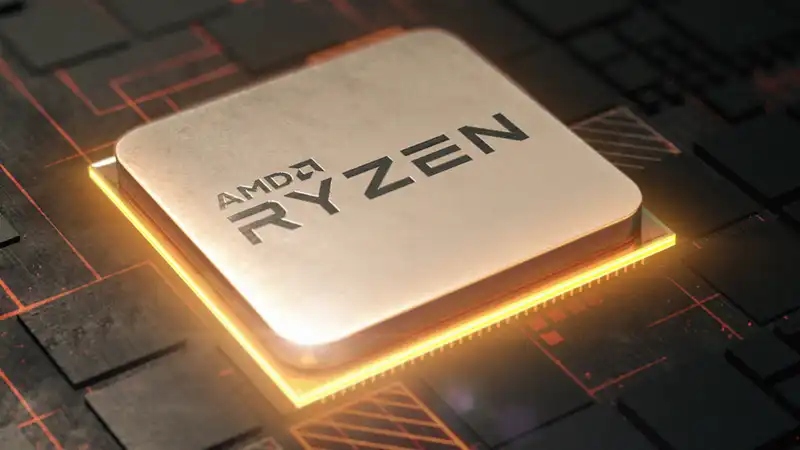Remember the "new" Ryzen 5000 chip AMD announced last week?
The YouTube channel Hardware Unboxed found something a little rotten in the Ryzen 7 5800XT and Ryzen 9 5900XT gaming benchmarks that AMD put out to promote the chip.
AMD's benchmarks showed the 5800XT beating Intel's Core i5-13600K in many games and the 5900XT beating the Core i7-13700K.
The problems with these claims are manifold, but they begin with the following. The "new" AMD CPUs are tweaks to existing chips based on the Zen 3 architecture: the 5800XT is an 8-core CPU with specs very close to the existing Ryzen 7 5700X, and the 5900XT is a 16-core CPU with specs approaching the Ryzen 9 5950X.
The point is that both "new" chips are almost known quantities, even without detailed third-party testing. But here's the problem: Hardware Unboxed's own testing showed that the Intel 13700K was 36% faster than the AMD 5950X on average across 12 games, and the Intel 13600K was 28% faster than the 5700X.
Due to the age difference between the 5800XT and the 13600K, no independent comparison figures are available. However, there are comparisons between the Intel 13600K and the new AMD 7700X. And in gaming, the Intel chips are winning.
Now, the 5800XT has a 200 MHz higher maximum boost clock than the older 5700X. But it is otherwise exactly the same, a mere 4% increase in peak theoretical operating frequency; the chances of it not only making up the 28% performance shortfall, but actually coming out on top, are very, very slim.
So what the heck is going on here - is AMD picking games that perform particularly well on their CPUs? All benchmarks were performed using an AMD Radeon RX 6600 GPU. Yes, the RX 6600 graphics card was used in all four CPU tests.
This means that the performance bottleneck in AMD's test setup was almost always the GPU. And AMD's CPU won because it was a better match for the RX6600 than Intel's chips.
In other words, strictly speaking, if you are using a Radeon RX 6600 GPU, you may find that these AMD CPUs perform very slightly better than their Intel competitors. However, if you are using newer, faster GPUs, you will almost certainly get the opposite result. This is because Intel CPUs are newer in generation and radically faster at running games.
In short, the benchmark numbers for AMD's 5800XT and 5900XT CPUs are misleading at best; PC gamers should not expect to get better gaming performance than AMD's comparable Intel CPUs based on the benchmark numbers provided by AMD If they purchase one of these CPUs with the expectation that they will be disappointed in the vast majority of possible scenarios and system configurations.
Moreover, anyone who is even remotely well-informed understands this. In other words, the person who signed off on the benchmark numbers either does not understand PC technology and gaming, or was intentionally trying to mislead. There is no other option.
Hardware Unboxed called this "AMD's lie"; it is hard to say that AMD was absolutely certain they were lying. But whatever happened, it was certainly not AMD's best time.
That's too bad, because the 5800XT and 5900XT are not bad CPUs if not oversold. It's good to see the old AM4 sockets getting a little more active. However, the chips are based on the Zen 3 CPU architecture, which is three and a half years and two generations old. But the chip is based on the Zen 3 CPU architecture, which is three and a half years and two generations old.


Comments